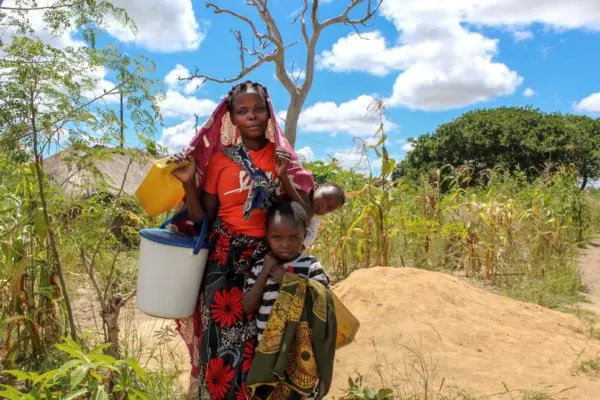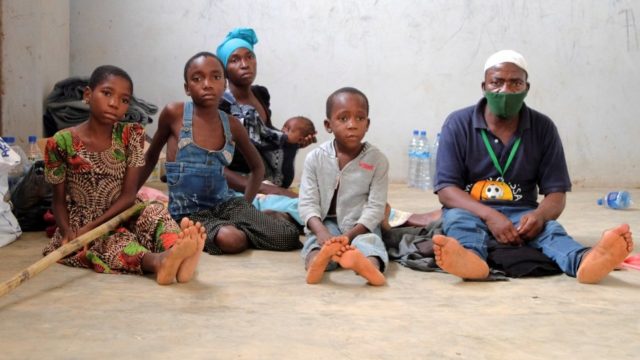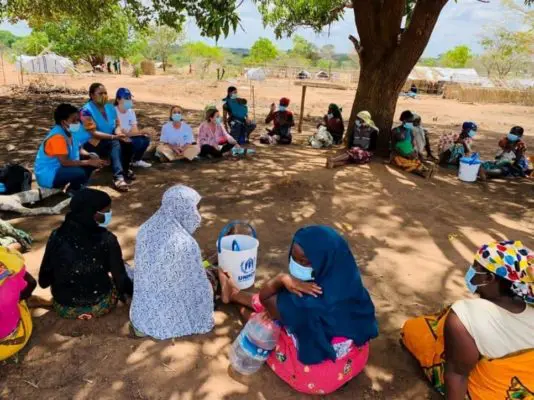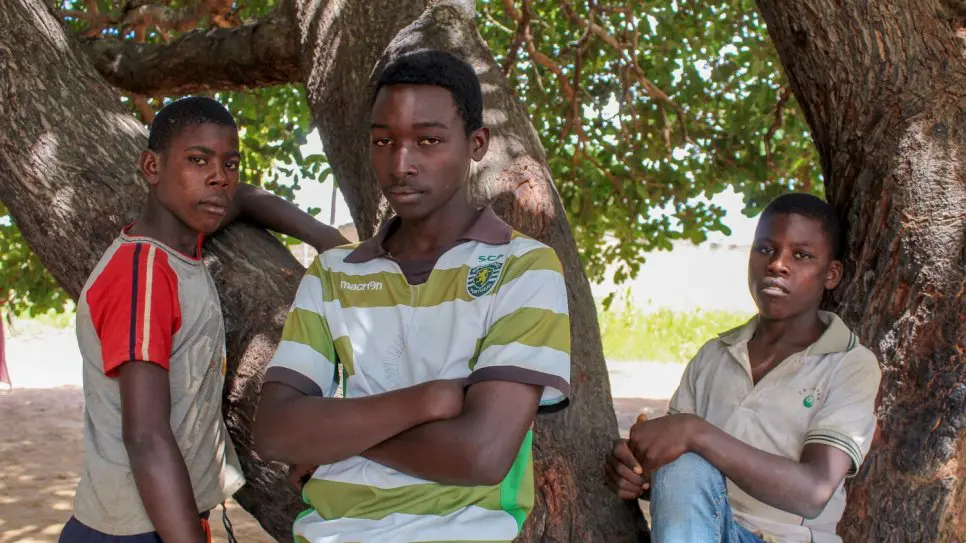
(Left to right) Bakar, 13, Momad, 17, and Abdala, 15, fled recent violence in northern Mozambique. © UNHCR/Martim Gray Pereira
Separated from their families and far from home after armed groups attacked their town, three young boys struggle to find food and shelter, and fear for their future.
By Francesca Fontanini in Montepuez, Mozambique
One morning earlier this month, friends Bakar, 13, Momad, 17, and Abdala, 15, were selling bananas and pieces of brightly-coloured material known as capulana at the main market in Mocimboa da Praia – a busy port town on Mozambique’s northern coast – as they often did to earn some money before heading to school in the afternoon.
Then, the three friends heard a commotion and noticed people running between the market stalls. They quickly realized the town was under attack by armed groups, having experienced similar attacks over the past four years in which civilians had been killed and buildings and infrastructure destroyed.
“At first, I thought that a bomb exploded in the market, as people were trying to escape everywhere and in different directions, jumping on the stands, [spilling] fruits and vegetables on the floor. It was total chaos,” explained Bakar. “I could not find a way out, and these bad people they first go after healthy boys to [recruit] them into criminal activities.”
Unable to return to their families amidst the chaos, the three friends joined the crowds of people fleeing the town, before beginning a dangerous journey of several hundred kilometres on foot and by bus to Montepuez, the second largest city in Mozambique’s Cabo Delgado province.
“It was total chaos.”
Recurring attacks and violence by non-state armed groups in northern Mozambique since October 2017 have forced nearly 700,000 people from their homes. These internally displaced people (IDPs) are currently spread among the provinces of Cabo Delgado, Niassa, Nampula, Sofala and Zambezia.
As well as women and the elderly, a significant proportion of the displaced are children. Many have witnessed shocking levels of violence and are often unaccompanied or separated from their families. As a result, they face grave risks, including child labour and forced recruitment by armed groups for boys and sexual abuse, child marriages and early pregnancy among girls.
UNHCR, the UN Refugee Agency, is leading the protection response, working with its partners to identify and provide urgent support for vulnerable groups including children who have been separated from their families, responding to their most urgent needs and reuniting them with their families as soon as possible.
“The protection of forcibly displaced girls and boys in Cabo Delgado should be at the heart of the government’s agenda on the protection of civilians,” said Sam Chakwera, UNHCR Representative in Mozambique. “Access to protection and basic services for displaced women and children must also be ensured,” he added.
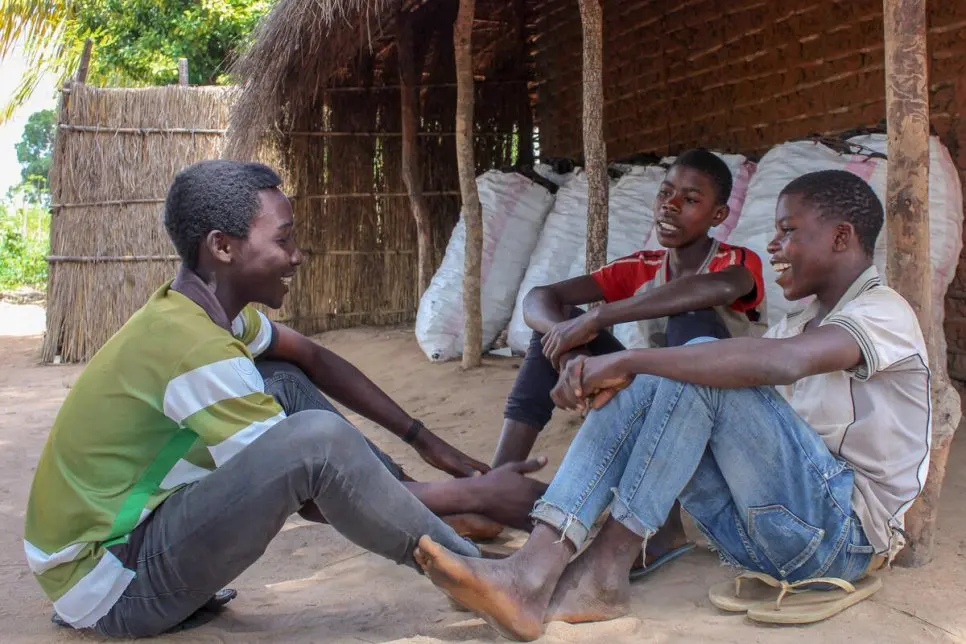
The three friends share a light moment in Ndele IDP site in Montepuez, Mozambique. © UNHCR/Martim Gray Pereira
After several days of travelling without food, the exhausted boys arrived in Montepuez. For the past two weeks they have been staying at the Ntele IDP site, opened by the government in December 2020 to accommodate people arriving from other parts of Cabo Delgado. It currently hosts 2,600 people, but with only 80 bamboo and mud shelters constructed by the residents themselves, many – including the three boys – are forced to sleep outside.
“Thank God there is a river where we can take a bath, as no water is available in the camp [and] the closest borehole is a 30-minute walk away,” said Abdala.
Back in Mocimboa da Praia, all three boys were attending school and had dreams of becoming doctors and teachers. But with the nearest school nearly two hours away on foot, they have had to put their education on hold while they focus on trying to find enough food to eat and somewhere better to sleep.
Among the displaced population there is a dire need for basic relief items including sleeping mats, blankets and tarpaulins.
While UNHCR attempts to reunite the boys with their families, all three say they are still too scared to return to Mocimboa da Praia despite the difficult situation they now find themselves in.
“I do not see an end to this war. We lived in constant terror for three years already, and children continue to run, to abandon their houses, to be separated from their families, to drop out of school,” said Momad. “It is difficult to think about a future in these circumstances, when you do not even know where you will be the next day.”
Originally published by UNHCR on 4 May 2021.



